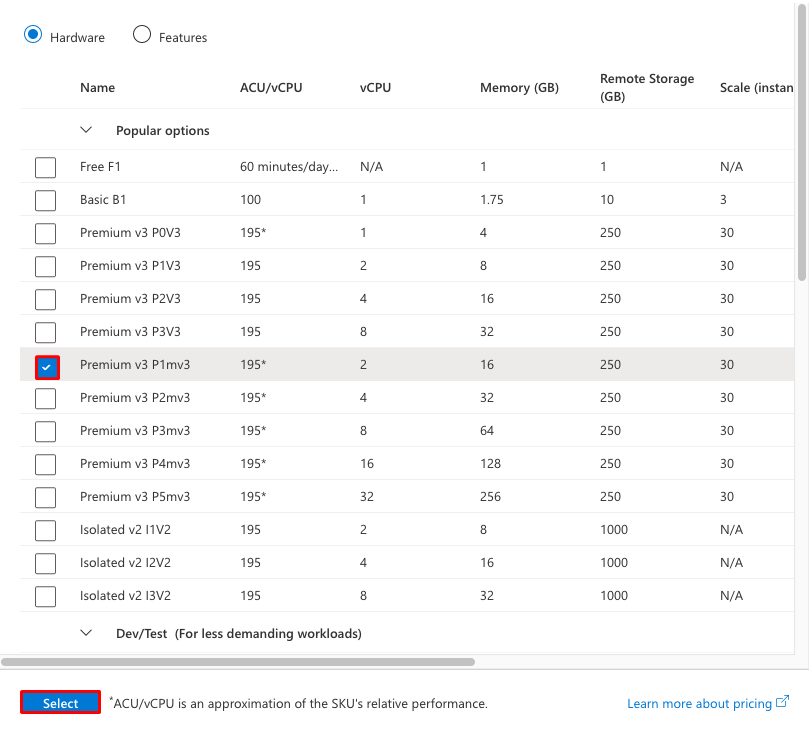I have a service plan currently on the Premium v3 P1V3 tier. I’m trying to scale it to the Premium v3 P0V3 tier overnight via a runbook with PowerShell to save some money. I can’t see anywhere in the documentation how the list of available SKUs translates to a Tier and WorkerSize. I’d have thought that It would go as follows:
- P0V3 – Tier=Premium V3, WorkerSize=Small
- P1V3 – Tier=Premium V3, WorkerSize=Medium
- P2V3 – Tier=Premium V3, WorkerSize=Large
- P3V3 – Tier=Premium V3, WorkerSize=Extra Large
Yet when I run:
Set-AzAppServicePlan -Name 'my-uks-plan' -ResourceGroupName 'my-rg' -Tier "Premium V3" -WorkerSize Small
I end up on P1V3. There’s some documentation at https://learn.microsoft.com/en-us/powershell/module/az.websites/set-azappserviceplan?view=azps-10.4.1 which doesn’t even list the available values for the WorkerSize argument. I pieced together the sall/medium/large values from a different SO post.
The JSON resource view in the overview panel lists all of the worker size/counts as "6" and makes no mention of small. I tried specifying the WorkerSize as Small, and got an error about the value not being found in the dictionary.
There’s also a terrifying list of SKUs at https://learn.microsoft.com/en-us/azure/app-service/app-service-configure-premium-tier (below) which doesn’t seem to fit with the s/m/l model at all.
Is there a list of these mappings somewhere or a more intuitive way to change the SKU via PowerShell?





2
Answers
Found an answer in the post at https://stackoverflow.com/a/76107563/30512
You can specify the SKU rather than guessing worker sizes.
I wasn’t able to find any official documentation on the "worker size" but I was able to find the size mapping explained on several forums.
References:
App Service Plan Scaling Azure PowerShell
App Service Worker Size -> pricing tiers translation